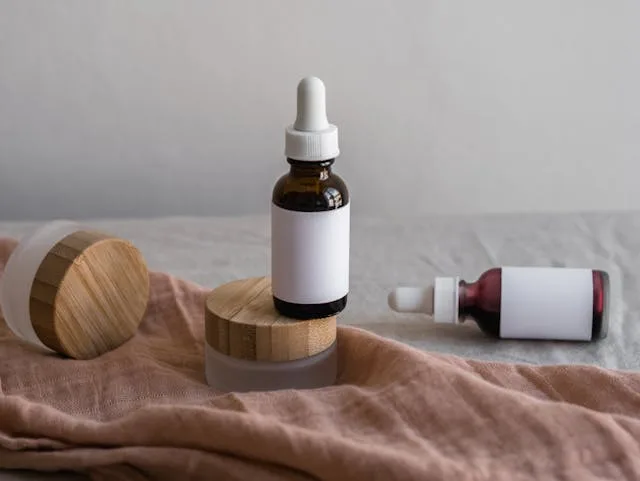When it comes to skin hydration, Hyaluronic Acid vs. Polyglutamic Acid is a common debate among skincare enthusiasts. Both are powerful humectants that help lock in moisture and keep the skin hydrated, yet they differ in how they work, their effectiveness, and which skin types benefit most. If you’re unsure which one suits your skin best, this guide breaks down their key differences to help you decide.
In this Article
What is Hyaluronic Acid?
Hyaluronic Acid (HA) is a naturally occurring molecule in the skin that attracts and retains water, keeping the skin plump and hydrated. It can hold up to 1,000 times its weight in water, making it one of the most effective hydration boosters.
Benefits of Hyaluronic Acid:
- Deep Hydration – Penetrates the skin to provide intense moisture.
- Plumps Fine Lines – Reduces the appearance of wrinkles by increasing skin elasticity.
- Supports Skin Barrier – Strengthens the skin’s protective barrier to prevent moisture loss.
- Works for All Skin Types – Suitable for oily, dry, and sensitive skin.
Who Should Use Hyaluronic Acid?
- Dry & Dehydrated Skin – Provides deep hydration and prevents flakiness.
- Aging Skin – Reduces the look of fine lines and improves elasticity.
- Oily & Acne-Prone Skin – Lightweight formulas keep the skin hydrated without clogging pores.
What is Polyglutamic Acid?
Polyglutamic Acid (PGA) is a newer humectant derived from fermented soybeans. It is four to five times more hydrating than Hyaluronic Acid, thanks to its ability to hold more water and form a protective film over the skin to prevent moisture loss.
Benefits of Polyglutamic Acid:
- Intense Hydration – Holds more water than HA, making it extremely moisturizing.
- Enhances Skin Barrier – Locks in hydration and prevents transepidermal water loss (TEWL).
- Boosts Natural Hyaluronic Acid – Stimulates HA production in the skin for long-term hydration.
- Improves Skin Texture – Smooths rough, dry patches and enhances glow.
Who Should Use Polyglutamic Acid?
- Extremely Dry Skin – Provides deep hydration and locks in moisture.
- Mature Skin – Helps improve elasticity and supports collagen production.
- Combination Skin – Ideal for maintaining balanced hydration without greasiness.
Hyaluronic Acid vs. Polyglutamic Acid: Key Differences
| Factor | Hyaluronic Acid (HA) | Polyglutamic Acid (PGA) |
|---|---|---|
| Water Retention | Holds 1,000x its weight in water | Holds 4-5x more water than HA |
| Hydration Type | Penetrates skin for deep hydration | Forms a protective layer to prevent water loss |
| Skin Benefits | Plumps, hydrates, and reduces fine lines | Locks in moisture, smooths skin, and boosts HA production |
| Best For | All skin types, especially dehydrated and aging skin | Very dry, mature, and combination skin |
Can You Use Hyaluronic Acid and Polyglutamic Acid Together?
Yes! Hyaluronic Acid and Polyglutamic Acid work well together to provide multi-layer hydration. HA pulls moisture into the skin, while PGA seals it in, preventing water loss. Layering them ensures long-lasting hydration and a plump, dewy complexion.
How to Use Them Together:
- Apply Hyaluronic Acid first on damp skin to attract moisture.
- Follow with Polyglutamic Acid to lock in hydration and create a protective barrier.
- Seal with a moisturizer to prevent any moisture loss.
Which One Should You Choose?
- If you need deep hydration and anti-aging benefits, Hyaluronic Acid is your go-to.
- If you struggle with severe dryness and need long-lasting moisture, Polyglutamic Acid is the better option.
- If you want maximum hydration, combine both for the best results.
Final Verdict: Hyaluronic Acid vs. Polyglutamic Acid
Both Hyaluronic Acid and Polyglutamic Acid are excellent for skin hydration, but their mechanisms differ. HA hydrates from within, while PGA locks in moisture and enhances hydration levels. For the best results, consider incorporating both into your skincare routine.
Frequently Asked Questions
A. Yes! Both are safe for daily use and work well for all skin types.
A. Hyaluronic Acid is generally better for sensitive skin, as it is naturally found in the skin and has soothing properties.
A. No, PGA is non-comedogenic and suitable for acne-prone skin.
The Takeaway
If you’re looking for the best hydrating ingredient, Hyaluronic Acid and Polyglutamic Acid each have unique benefits. Whether you choose one or use both together, your skin will thank you for the extra hydration and glow!
Would you like recommendations for the best Hyaluronic Acid and Polyglutamic Acid serums? Let us know in the comments!
Want the latest scoop, exclusive deals, and skincare secrets? Follow us on WhatsApp and never miss a glow-up moment!




